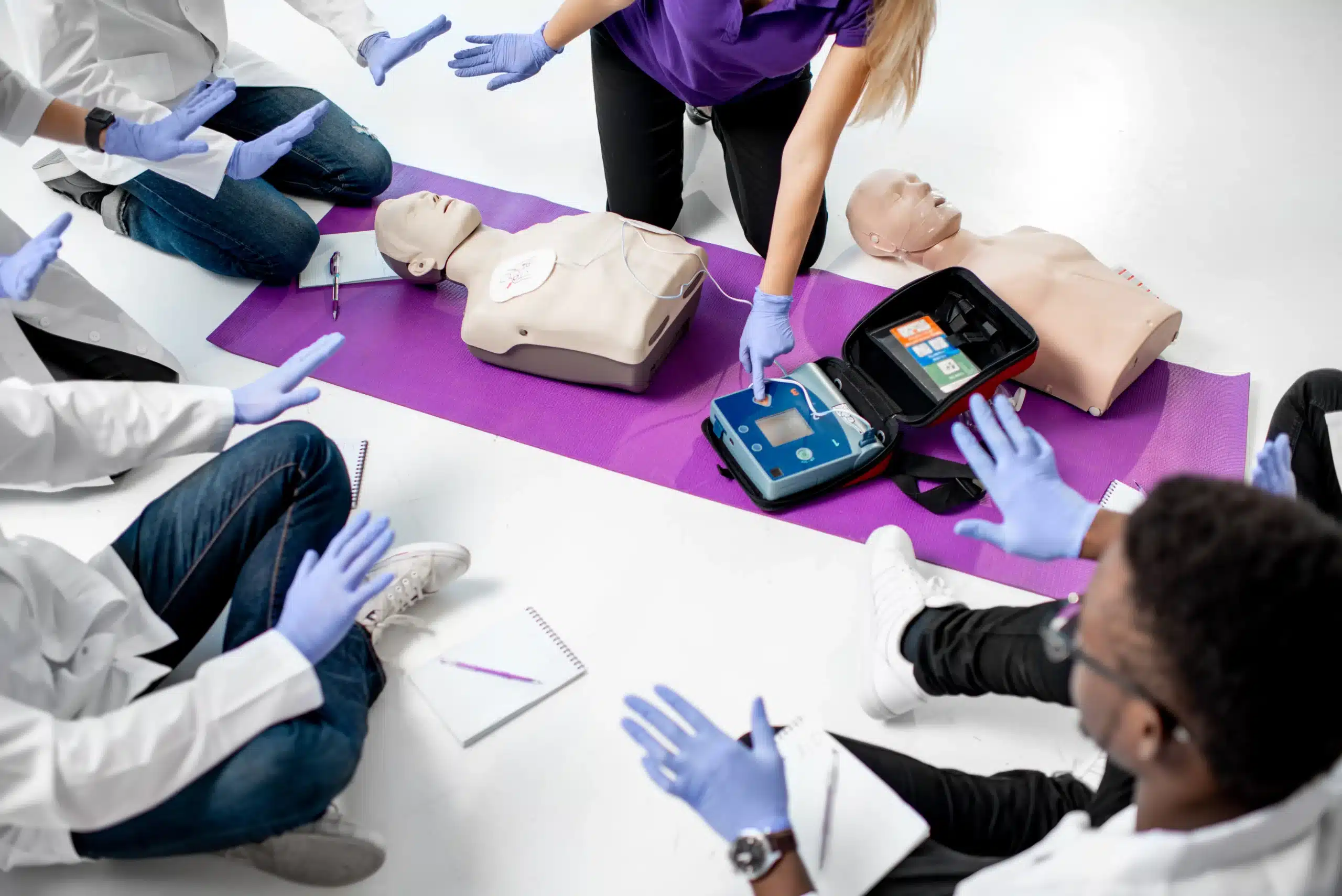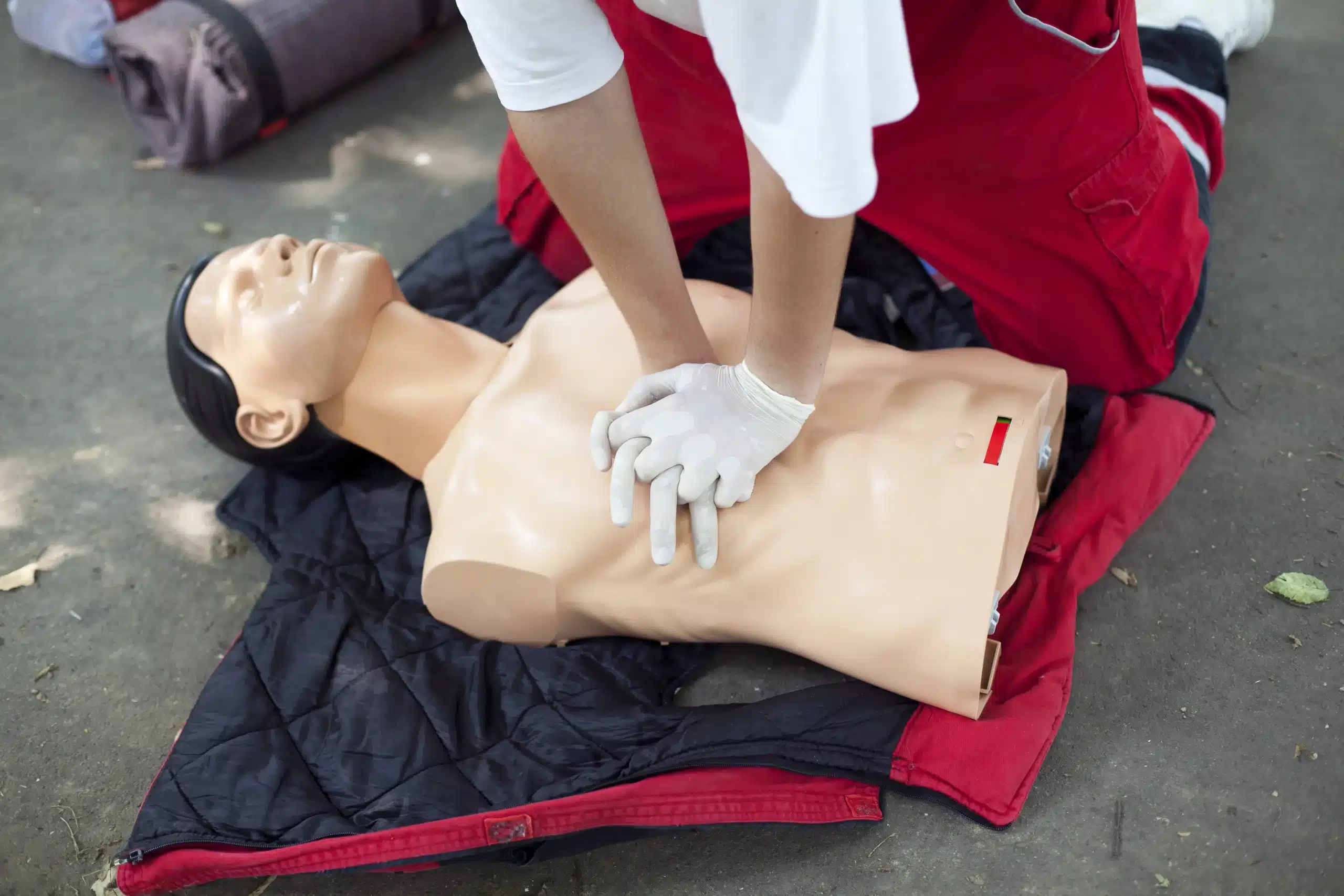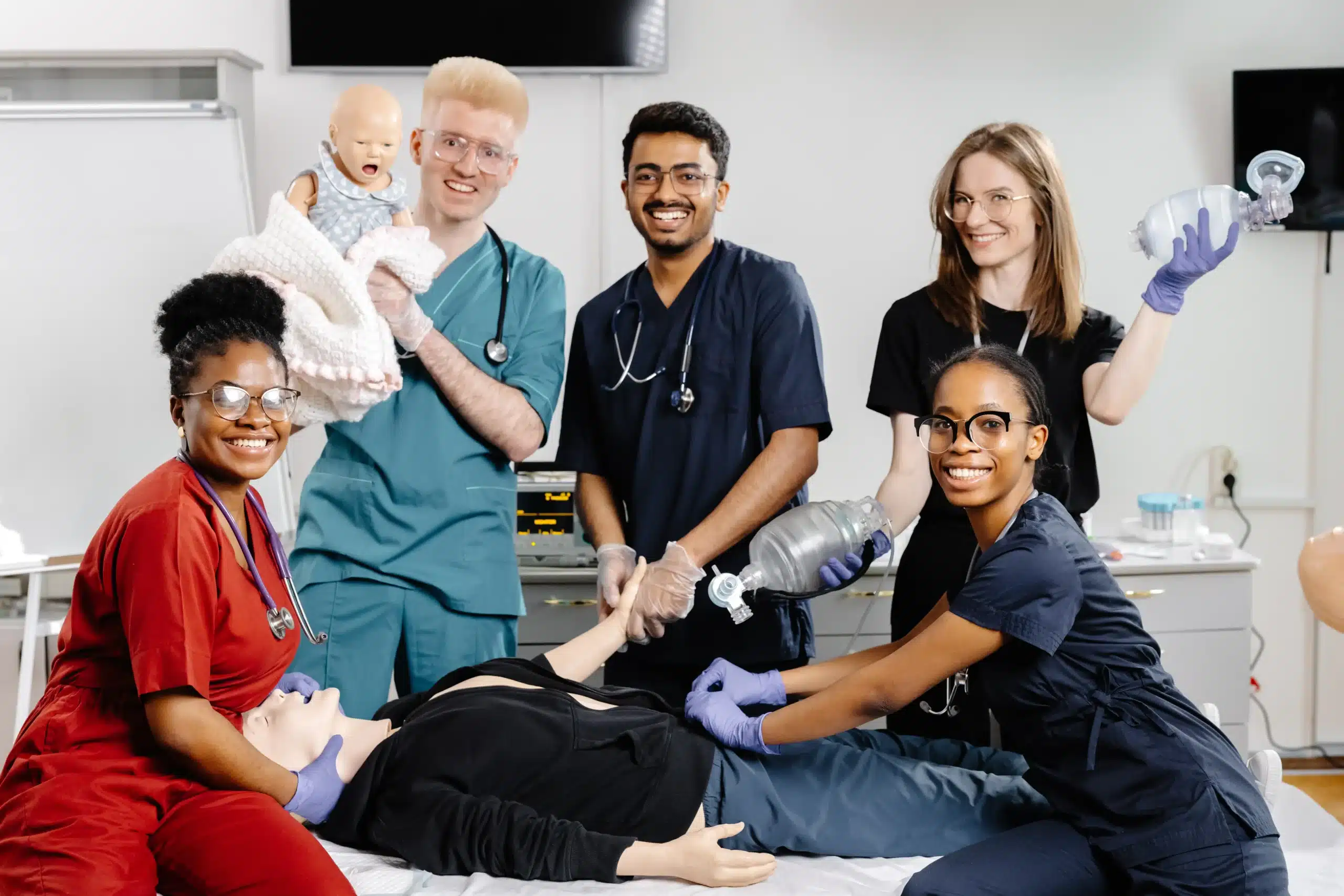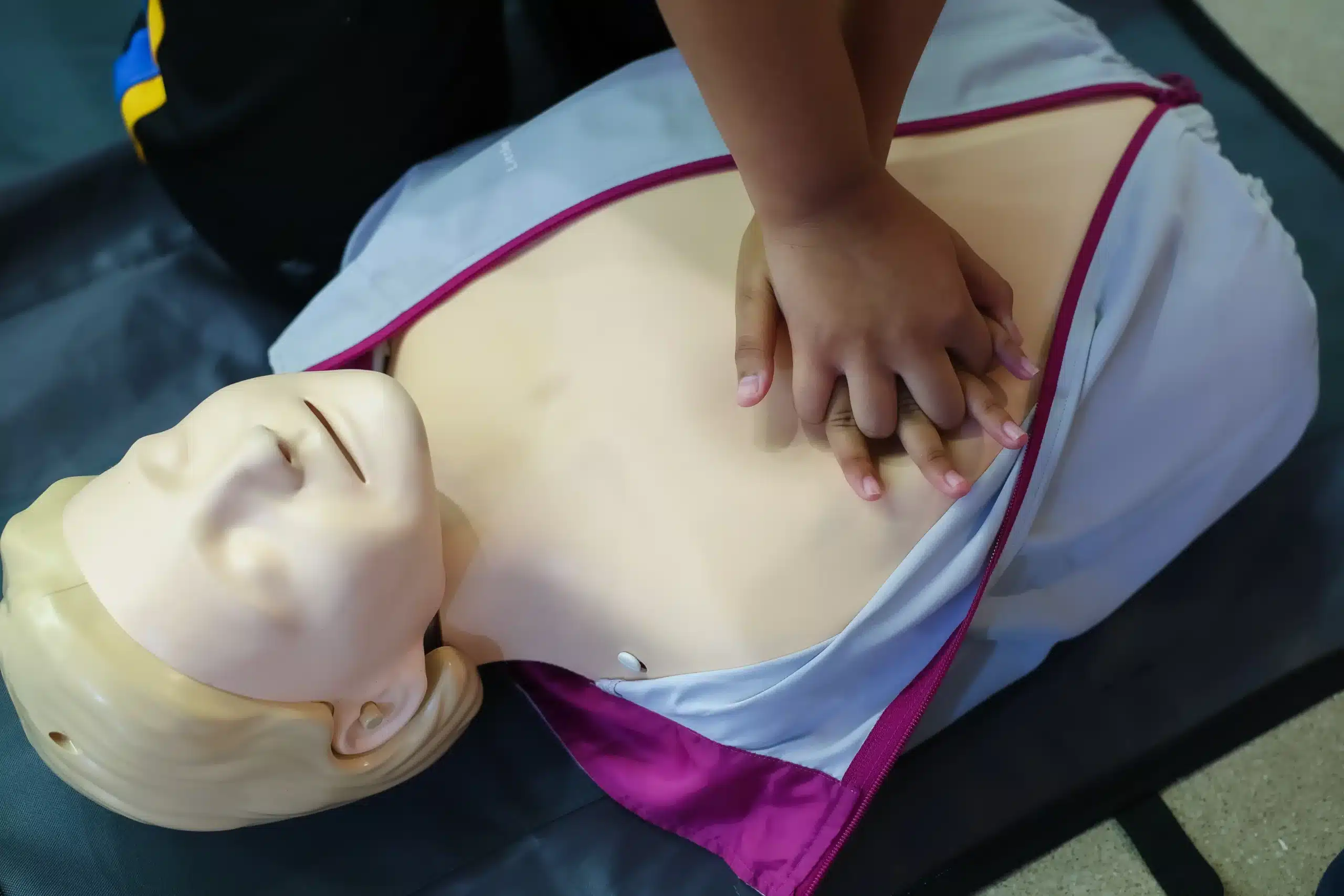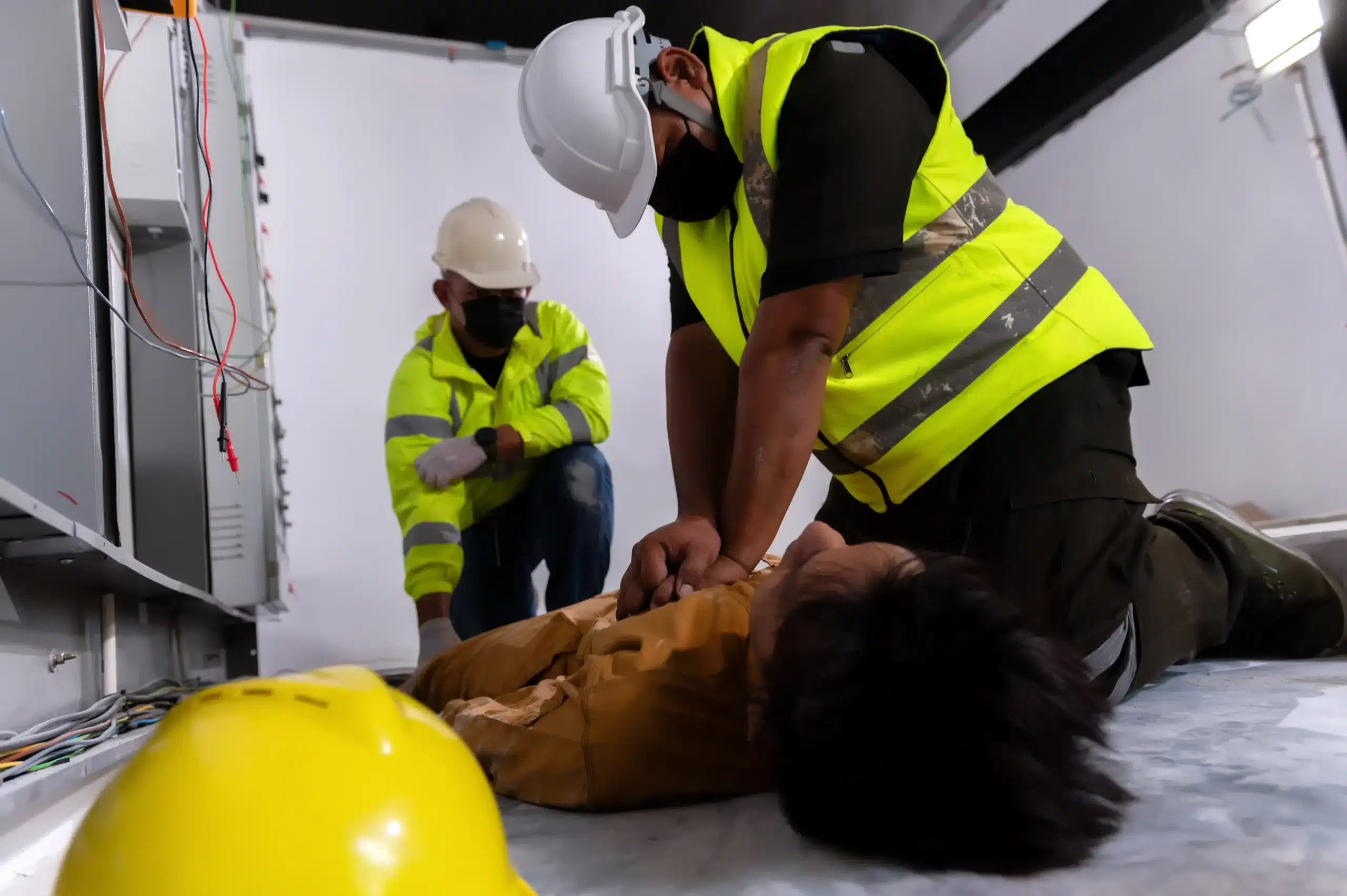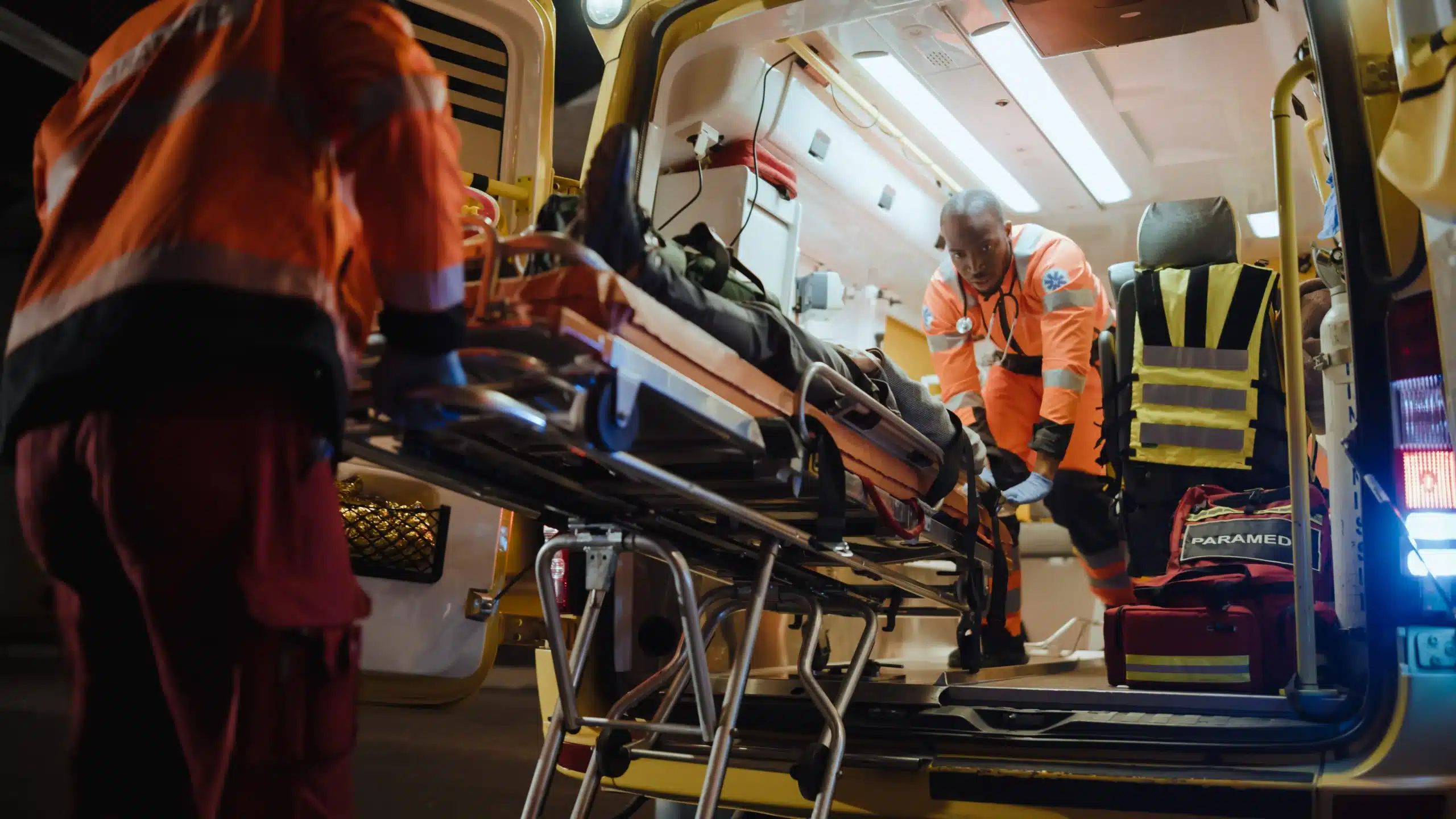Empowering yourself with life-saving skills is one of the most valuable things you can do, both for yourself and your community. CPR certification gives you the confidence to respond effectively during medical emergencies, potentially making a profound difference in someone’s life. This guide is your go-to resource for finding CPR courses in Pleasant Hill. We’ll break down the different types of CPR training, discuss costs and scheduling options, and highlight reputable providers in the area. Whether you’re a healthcare professional, a childcare provider, or simply someone who wants to be prepared, we’ll help you find the perfect CPR course to fit your needs and goals.
Key Takeaways
- Find the right CPR class for you: Pleasant Hill offers a variety of CPR courses, from basic to advanced, so you can choose one that fits your needs and career goals. Whether you’re a healthcare professional, teacher, or simply want to be prepared, there’s a course for you.
- CPR training is more accessible than you think: With various course formats (in-person, online, and hybrid) and flexible scheduling options, you can easily find a CPR class that works with your busy life. Explore local providers and compare costs to find the best value.
- Stay current with your CPR skills: Maintaining your certification ensures you’re always ready to respond effectively in an emergency. Regularly refresh your knowledge and skills to provide the best possible care when it matters most.
What is CPR? Pleasant Hill Courses
Cardiopulmonary Resuscitation (CPR) is a life-saving technique used in emergencies. It combines chest compressions and rescue breaths to maintain blood flow and oxygen to the brain and other vital organs until professional medical help arrives. Knowing CPR can make a profound difference, and thankfully, there are many courses available in Pleasant Hill to equip you with this essential skill.
Pleasant Hill offers various CPR training options to suit different needs. For example, the Pleasant Hill CPR Training Center offers courses based on American Heart Association guidelines, ensuring high-quality instruction and certification. These courses give people the confidence to respond effectively during emergencies. Safety Training Seminars offers a range of courses, including CPR, BLS (Basic Life Support), ACLS (Advanced Cardiovascular Life Support), and PALS (Pediatric Advanced Life Support). This allows you to select the course that best fits your personal or professional goals. For healthcare providers seeking a streamlined approach, the American Heart Association’s RQI (Resuscitation Quality Improvement) program is a valuable option for efficient certification and real-world emergency preparedness. Taking a CPR course in Pleasant Hill provides you with valuable skills and contributes to a safer, more prepared community.
CPR Course Types
Choosing the right CPR course depends on your specific needs and career goals. Here’s a breakdown of the common CPR certifications available in Pleasant Hill:
Basic Life Support (BLS)
BLS CPR training provides the foundational skills to respond to cardiac arrest and choking emergencies. These courses teach you how to perform CPR, use an AED, and relieve choking in adults, children, and infants. BLS certification is often required for healthcare providers and first responders, and it’s a valuable asset for anyone working in a healthcare setting.
Advanced Cardiovascular Life Support (ACLS)
ACLS courses expand on the skills learned in BLS. Designed for healthcare professionals, ACLS training covers a wider range of life-threatening emergencies, including stroke and acute coronary syndromes. You’ll learn advanced airway management techniques, intravenous access, and pharmacological interventions. ACLS also emphasizes effective team dynamics and communication in critical situations.
Pediatric Advanced Life Support (PALS)
PALS training focuses on the emergency care of infants and children. This course equips healthcare providers with the knowledge and skills to recognize and manage respiratory distress, shock, and other pediatric emergencies. PALS, like ACLS, highlights the importance of teamwork and clear communication during emergencies.
Heartsaver CPR/AED
Heartsaver CPR/AED training is perfect for anyone who wants to learn CPR and how to use an AED, even if they don’t work in healthcare. This includes teachers, coaches, childcare providers, and members of the general public. These courses teach the essential skills to respond to cardiac arrest and choking emergencies in adults, children, and infants. While not as in-depth as BLS, Heartsaver courses offer valuable, potentially life-saving skills.
Course Costs & Formats
CPR certification is an investment in lifesaving skills. Understanding the costs and available formats can help you find the right course in Pleasant Hill.
Factors Affecting Course Prices
Several factors influence CPR course prices. Course length is a major one. A shorter course focusing on adult CPR and AED use might be more affordable than a comprehensive course covering CPR for all ages. The type of certification also matters. For example, a basic CPR course for the general public may have a different price point than a BLS course for healthcare providers. Group discounts are often available, making it more cost-effective to train a team of colleagues. Location can also play a role, with prices sometimes varying between training centers. For the best value, check with your chosen provider for their specific pricing. Safety Training Seminars offers a low price guarantee, ensuring you get the best value.
Average Costs by Course Type
While prices vary, understanding the general range for different course types can be helpful. Basic CPR and AED courses typically start around $35 per person. More advanced courses like BLS for Healthcare Providers may have a higher fee. Specialized courses, such as ACLS and PALS for healthcare professionals, also fall into a higher price bracket. Contact the training center directly for the most up-to-date pricing. You can explore BLS course options to get a better understanding of pricing.
In-Person, Online, & Hybrid Training
Pleasant Hill offers various CPR training formats to fit your learning style and schedule. In-person classes provide hands-on practice and direct interaction with instructors. Online courses offer flexibility, allowing you to learn at your own pace. Hybrid courses combine online learning with in-person skills sessions. Consider which format best suits your needs when choosing a course. Many providers offer a range of formats, so explore their website to find the best fit. The American Heart Association’s RQI program offers a streamlined approach to maintaining certifications for healthcare professionals.
Enroll in a CPR Course: Process & Prerequisites
Getting CPR certified is easier than you think. This section breaks down the enrollment process, prerequisites, and flexible scheduling options available for CPR courses in Visalia, Tulare, and Delano.
Steps to Enroll
Enrolling in a CPR course with Safety Training Seminars is straightforward. Visit our website and find the course you’re looking for, such as our BLS certification, then follow the prompts to register. You can also view our course calendar to see available BLS courses in Visalia and select a date and time that works for you. For questions or assistance, call us directly. We’re happy to guide you through the process.
Prerequisites & Requirements
Our CPR courses are designed to be accessible. While some specialized courses, like our RQI classes, may have specific requirements, most CPR and First Aid classes are open to anyone aged 16 and older. Younger students are also welcome, making it a great opportunity for families to learn together. Contact us with any questions about age requirements for a specific course.
Scheduling & Flexibility
We understand busy schedules can make it challenging to fit in extra training. That’s why we offer various scheduling options. We hold daily classes at our Visalia location and offer on-site training for groups and businesses. Whether you prefer weekday or weekend classes, morning or evening sessions, we strive to provide flexible options. Contact us to discuss group or corporate training and our low price guarantee.
What Happens During CPR Training?
So, you’ve decided to take a CPR class—fantastic! But what should you expect when you walk in the door? This section breaks down what typically happens during CPR training, from the course structure and the skills you’ll gain to how you get certified.
Course Length & Structure
CPR training courses are designed to be efficient and effective. Most Basic Life Support (BLS) CPR courses are about two hours long, allowing instructors to cover essential material and provide ample hands-on practice. Expect a mix of instruction, demonstrations, and practice sessions using mannequins. Some courses, especially those for healthcare providers, may also include videos and interactive learning. Many training centers offer classes daily to accommodate busy schedules.
CPR Skills Learned
In a CPR training course, you’ll learn the core skills needed to respond to life-threatening emergencies. This includes recognizing the signs of cardiac arrest or choking, performing chest compressions and rescue breaths, and using an automated external defibrillator (AED). You’ll also learn how to assess a situation and provide appropriate care until professional help arrives. The goal is to give you the knowledge and confidence to act quickly and effectively in a crisis. Learn more about these skills and how they can empower you to make a difference.
Certification & Validity
After successfully completing your CPR training, you’ll receive a certification card. This card confirms you’ve met the course requirements and are qualified to perform CPR. Most CPR certifications are valid for two years. To maintain your skills and stay current with the latest guidelines, you’ll need to recertify before your current certification expires. This ensures you’re always prepared to provide the best possible care. Find out more about CPR certification and the importance of staying up-to-date.
Top Pleasant Hill CPR Providers
Finding the right CPR provider is key to a positive and effective learning experience. Here are a few options to explore in Pleasant Hill:
Safety Training Seminars
Safety Training Seminars offers American Heart Association courses, including CPR, BLS, ACLS, and PALS, right here in Pleasant Hill. This is a convenient option if you’re looking for local BLS, ACLS, or PALS training.
American Heart Association Training Centers
For healthcare professionals in Pleasant Hill, the American Heart Association’s RQI (Resuscitation Quality Improvement) program offers a streamlined path to BLS, ACLS, and PALS certification. RQI is a popular choice for its modern approach and efficient training.
CPR Training Center
The Pleasant Hill AHA Certified CPR Training Center focuses on a range of courses, from ACLS and PALS to CPR training. They serve Pleasant Hill and the surrounding Contra Costa County area.
HeartSafe CPR
Heart Wise Emergency Response Training provides CPR and AED training in Pleasant Hill. Their two-hour course covers essential life-saving skills and typically costs around $35 per person.
American Red Cross
The American Red Cross offers CPR certification classes covering essential skills for responding to emergencies involving infants, children, and adults. They are a nationally recognized provider of CPR training.
Maintain Your CPR Certification
Keeping your CPR skills sharp is essential for responding effectively in emergencies. This section covers how to maintain your certification and stay up-to-date with the latest life-saving techniques.
Renewal Requirements & Timeframes
CPR certifications are typically valid for two years. This timeframe ensures you stay current with evolving CPR guidelines and best practices, maximizing the effectiveness of your response during a crisis. Check your CPR card for the expiration date and give yourself plenty of time to find a renewal course. Timely renewal is key to confident and effective emergency response. For more information on CPR training and renewal options, check out this helpful resource on CPR classes.
Continuing Education
Staying current with the latest CPR techniques is crucial for providing the best possible care. The American Heart Association’s RQI (Resuscitation Quality Improvement) program offers a streamlined approach to maintaining your BLS, ACLS, and PALS certifications. RQI emphasizes ongoing education and skill refreshment through regular practice and assessments. This ensures healthcare providers are always prepared to respond effectively in emergencies. Many CPR training centers offer RQI courses, making it convenient to integrate continuous learning into your professional development. Beyond RQI, look for courses that adhere to the latest AHA guidelines to ensure you’re learning the most current and effective techniques. Staying informed about the latest guidelines benefits your professional skills and contributes to a safer community. You can find more information on AHA-authorized CPR courses here.
Why CPR Training Matters: Professions
CPR training equips individuals with life-saving skills applicable in various personal and professional settings. Let’s explore the importance of CPR training across different professions.
Healthcare Professionals
For healthcare professionals like doctors and nurses, CPR training is paramount. It provides the foundational skills to respond to cardiac arrest and other medical emergencies, directly impacting patient outcomes. BLS certification for healthcare providers covers core techniques such as chest compressions, rescue breaths, and using an AED. These skills are crucial for maintaining patient stability while waiting for advanced medical assistance. Learn more about BLS certification.
Educators & Childcare Providers
Educators and childcare providers are entrusted with the safety and well-being of children. CPR training empowers these professionals to respond swiftly and effectively to emergencies, creating a safer environment. From choking incidents to sudden cardiac events, CPR certification can make a critical difference in protecting young lives. Safety Training Seminars offers CPR and first-aid training tailored to the needs of childcare providers, meeting California’s EMSA requirements.
Fitness Instructors & Coaches
Fitness instructors and coaches often work with individuals engaging in strenuous physical activity, which can increase the risk of medical emergencies. CPR training prepares them to handle situations like exercise-induced collapse or sudden cardiac arrest. Administering CPR and using an AED can ensure the immediate safety of their clients until professional medical help arrives. Explore CPR training options at Safety Training Seminars.
General Public & Workplace Safety
CPR training isn’t just for specific professions; it’s a valuable skill for everyone. In any workplace or public setting, a cardiac emergency can occur. Bystanders trained in CPR can act as immediate responders, providing crucial assistance before paramedics arrive, which can significantly improve the chances of survival. Contact Safety Training Seminars to find a class that fits your schedule. They serve Visalia, Tulare, and Delano, CA, and offer a low price guarantee.
Pleasant Hill CPR Courses: Unique Features
Pleasant Hill offers a range of CPR courses with features designed to meet diverse needs. Whether you’re a healthcare professional, educator, or community member, you can find a program that fits your schedule and learning style. Here’s what makes Pleasant Hill CPR training stand out:
AHA Authorized Training
The CPR Training Center in Pleasant Hill has been an American Heart Association (AHA) authorized training center for nearly three decades. This authorization means the courses align with the latest AHA guidelines and meet rigorous quality standards. An AHA-authorized course provides a nationally recognized certification, giving you confidence in your skills. These certifications are often preferred by employers and professional organizations.
Flexible Learning
Pleasant Hill CPR courses recognize that busy schedules can make traditional classroom learning challenging. The RQI program, for example, offers a flexible path to BLS, ACLS, and PALS certification. This blended learning approach combines online modules with in-person skills sessions, allowing healthcare professionals to learn at their own pace. This format makes it easier to fit essential training into demanding work schedules.
Group & Corporate Training
For businesses and organizations in Pleasant Hill, group and corporate training options are available. The CPR Training Center offers on-site training with flexible scheduling and discounted pricing. This is a cost-effective and convenient way to train multiple employees at once, ensuring workplace safety and compliance with industry regulations. On-site training minimizes disruption and allows for team-building.
Choose the Right CPR Course
Finding the right CPR course in Pleasant Hill involves understanding your needs, exploring different options, and verifying the quality of training. Let’s break down how you can make the best choice for your situation.
Assess Your Needs & Goals
Before searching for “CPR classes near me,” think about why you want CPR certification. Are you a healthcare professional required to maintain BLS certification? Are you a parent wanting to feel prepared for emergencies at home? Or are you looking to volunteer and need CPR training? Identifying your specific needs will guide you toward the appropriate course level. These courses can be truly empowering, turning participants into capable first responders.
Compare Course Options
Once you have a clearer picture of your goals, compare the various CPR courses available in Pleasant Hill. Safety Training Seminars offers a range of American Heart Association courses, including CPR, BLS, ACLS, and PALS. Consider the differences between these certifications. BLS is generally the foundation, while ACLS and PALS cater to healthcare providers handling advanced cardiovascular and pediatric emergencies. For healthcare professionals seeking a streamlined path to BLS, ACLS, or PALS certification, the American Heart Association’s RQI program is a popular option.
Read Reviews & Testimonials
Finally, don’t underestimate the value of feedback. Checking online reviews and testimonials can offer valuable insights into the quality of instruction, the learning environment, and the overall experience. Platforms like Yelp and Thumbtack can be excellent resources for finding reviews of local CPR training providers. Look for comments that discuss the instructor’s effectiveness, the clarity of the materials, and the staff’s helpfulness. This extra step can give you confidence that you’re choosing a reputable, high-quality CPR course.
Related Articles
- Why CPR is Important in Healthcare – Visalia CPR Classes
- Why Workplace CPR and First-Aid Training Matters
- The Science Behind Effective CPR – Visalia CPR Classes
- CPR Training in Visalia: Your Complete Guide – Visalia CPR Classes
- BLS Certification in Concord: The Complete Guide – Visalia CPR Classes
Frequently Asked Questions
What’s the difference between BLS and Heartsaver CPR?
BLS (Basic Life Support) certification is generally more comprehensive than Heartsaver CPR and is often a requirement for healthcare providers and those in related fields. It covers a broader range of life-saving techniques, including CPR for adults, children, and infants, AED use, and relief of choking. Heartsaver courses are designed for the general public and focus on essential CPR and AED skills.
How much does CPR training cost in Pleasant Hill?
The cost of CPR training varies depending on the course type and provider. Basic CPR/AED courses usually start around $35, while more advanced certifications like BLS, ACLS, and PALS have higher fees due to the specialized content and longer duration. Check with specific training centers like Safety Training Seminars or the CPR Training Center for their current pricing. Many providers offer group discounts, so inquire about those if you’re training with colleagues or friends.
How long does it take to get CPR certified?
Most basic CPR courses can be completed in a single day, often within a few hours. More advanced courses like BLS, ACLS, and PALS typically require a longer time commitment due to the in-depth nature of the material. Online or blended learning options can offer more flexibility, allowing you to complete the coursework at your own pace.
How do I find a CPR class near me in Pleasant Hill?
Several resources can help you locate CPR classes in Pleasant Hill. Searching online for “CPR classes near me” is a good starting point. You can also check with local hospitals, community centers, or organizations like the American Red Cross and the American Heart Association. Reading online reviews and comparing course options can help you find a reputable provider that meets your needs.
How often do I need to renew my CPR certification?
Most CPR certifications are valid for two years. It’s essential to renew your certification before it expires to maintain your skills and stay up-to-date with the latest guidelines. Check with your certifying organization or training center for specific renewal requirements and available courses. Staying current with your CPR certification ensures you’re always prepared to respond effectively in an emergency.
